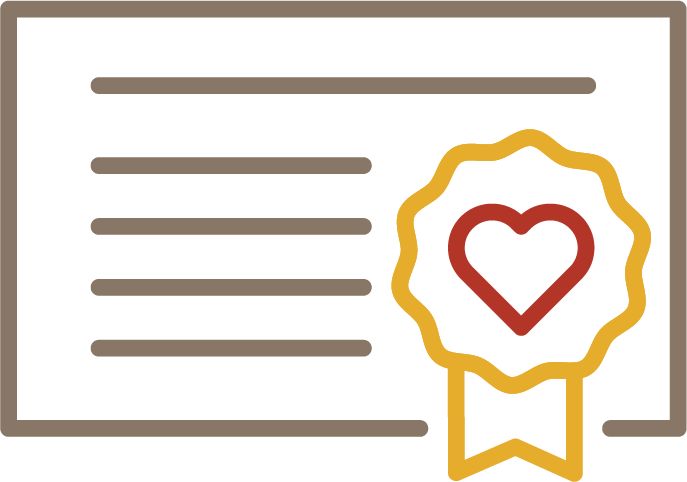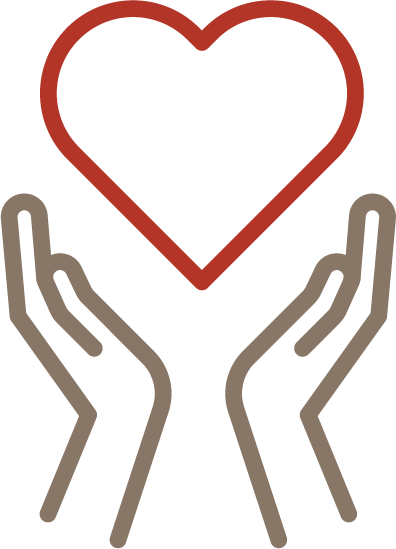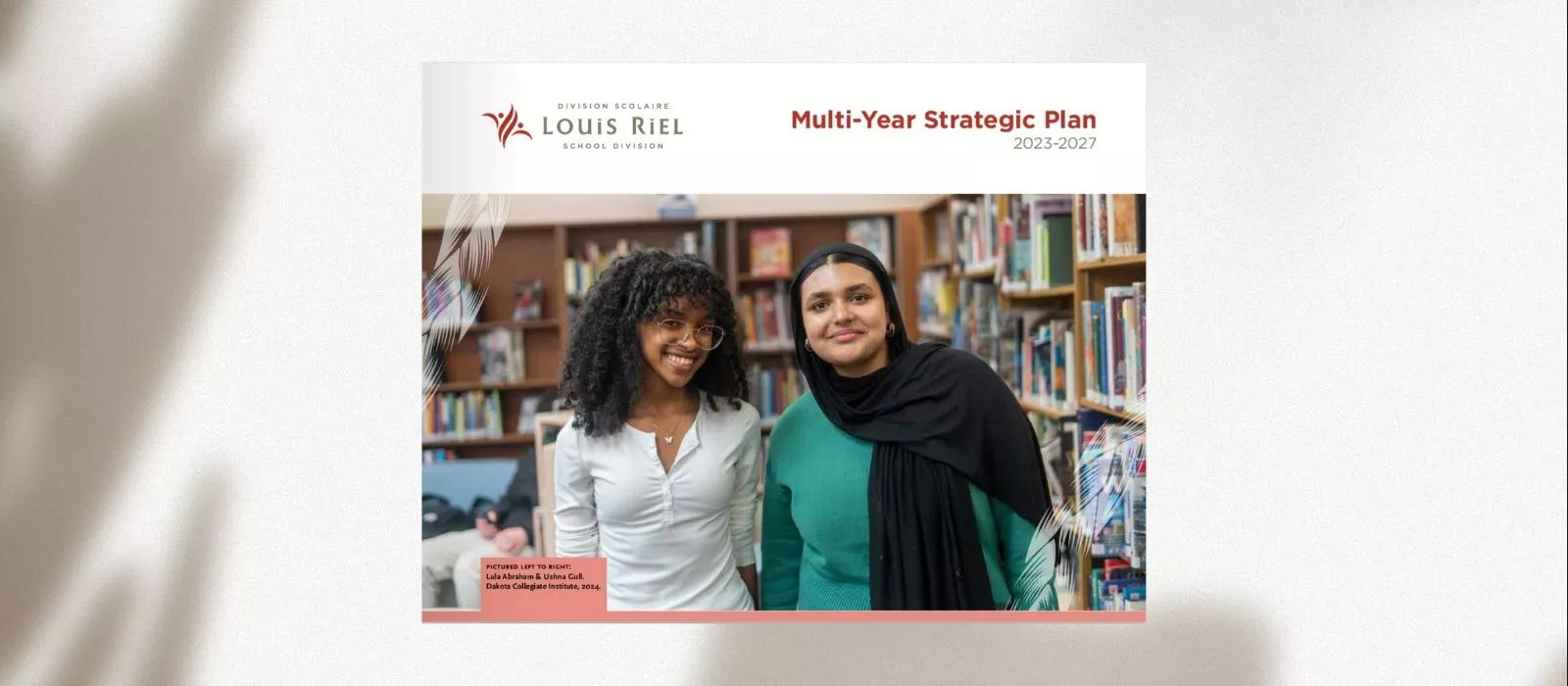Multi-Year Strategic Plan 2023-2027
The Multi-Year Strategic Plan (MYSP) for 2023-2027 is centred on key insights gleaned from the Progress Report: Taking Stock of our MYSP for 2019-2023, published in March 2023. Ongoing opportunities in April, May, and June for community to engage with drafting the MYSP and provide feedback shaped further refinements. A key takeaway based on feedback from staff and students was that the MYSP for 2023-2027 should maintain and further refine the four strategic priorities from 2019-2023.
 |  |  |  |
| Belonging | Mastery | Independence | Generosity |
The MYSP is inspired from the idea that broad collective agreement about expectations and commitments is essential to achieving a more fulfilling and flourishing life at school and work. The plan emphasizes our commitment to diversity, equity, inclusion, and accessibility (DEIA) principles, Indigenous worldviews and perspectives, co-stewardship with all staff, partnership with families, nurturing student voice and agency, leveraging and developing our data literacy, as well as collaboration with governments and community.
The MYSP is informed by the Manitoba Government's K to 12 Education Action Plan, Manitoba’s Indigenous Education Policy Framework – Mamàhtawisiwin: The Wonder We Are Born With and the International Science and Evidence based Education (ISEE) Assessment published in 2022.
The MYSP is also a multi-disciplinary endeavour that builds on the provincial and national research projects and initiatives that LRSD has co-designed with universities and educational partners.
To learn more about the MYSP’s four strategic priorities and 25 actions that will guide the LRSD community on its journey for 2023-2027 open the following links.
Strategic Priority 1: Belonging
A focus on inclusion and well-becoming to ensure all students and staff are welcomed, accepted, valued, healthy, and safe while at school and in the workplace—and to ensure parents/guardians are welcomed and valued as essential partners. Click on the icon to learn more about the strategic action.
Advancing this strategic priority is supported by the following strategic actions:
![]() 1.1. Expand the LRSD Community Schools Network at the René Deleurme Centre to serve more schools and families.
1.1. Expand the LRSD Community Schools Network at the René Deleurme Centre to serve more schools and families.
![]() 1.2. Create a comprehensive Workplace Safety and Health Program to promote and support employee wellness to better nurture student wellness.
1.2. Create a comprehensive Workplace Safety and Health Program to promote and support employee wellness to better nurture student wellness.
![]() 1.3. Reinforce trauma-responsive practices.
1.3. Reinforce trauma-responsive practices.
![]() 1.4. Introduce Indigenous Language Nests for preschool-aged children in our family centres. Expand both the Kindergarten to Grade 3 Indigenous Language Exposure curriculum and Grades 9 to 12 Indigenous Language options to all schools.
1.4. Introduce Indigenous Language Nests for preschool-aged children in our family centres. Expand both the Kindergarten to Grade 3 Indigenous Language Exposure curriculum and Grades 9 to 12 Indigenous Language options to all schools.
![]() 1.5. Reframe the Grade 11 English Language Arts curriculum to focus on Indigenous literature and perspectives, while ensuring the Grade 11 History curriculum thoroughly explores Indigenous histories and perspectives.
1.5. Reframe the Grade 11 English Language Arts curriculum to focus on Indigenous literature and perspectives, while ensuring the Grade 11 History curriculum thoroughly explores Indigenous histories and perspectives.
![]() 1.6. Expand International and Heritage Language options in high schools.
1.6. Expand International and Heritage Language options in high schools.
A focus on equitable teaching and clinical practices that consider an individual’s circumstances, so all students thrive and realize their full potential. Click on the icon to learn more about the strategic action.
Advancing this strategic priority is supported by the following strategic actions:
![]() 2.1. Strengthen a learner-centred and holistic approach to ensure instruction is tailored to meet and build on the unique needs, interests, aptitudes, and abilities of each student.
2.1. Strengthen a learner-centred and holistic approach to ensure instruction is tailored to meet and build on the unique needs, interests, aptitudes, and abilities of each student.
![]() 2.2. Develop a framework to assist staff in supporting neurodiversity and diverse abilities in our classrooms.
2.2. Develop a framework to assist staff in supporting neurodiversity and diverse abilities in our classrooms.
![]() 2.3. Implement universal early screening and monitoring to ensure a preventive and proactive approach to teaching and systemic interventions.
2.3. Implement universal early screening and monitoring to ensure a preventive and proactive approach to teaching and systemic interventions.
![]() 2.4. Create and implement a social and emotional learning curriculum in all classrooms.
2.4. Create and implement a social and emotional learning curriculum in all classrooms.
![]() 2.5. Make the French Immersion program easier to access by introducing new entry points and meeting the needs of all learners.
2.5. Make the French Immersion program easier to access by introducing new entry points and meeting the needs of all learners.
![]() 2.6. Enhance French Language teaching and learning in English program schools.
2.6. Enhance French Language teaching and learning in English program schools.
Strategic Priority 3: Independence
A focus on engaging students’ innate abilities and curiosity to empower a love of learning, self-confidence, and self-efficacy. Click on the icon to learn more about the strategic action.
Advancing this strategic priority is supported by the following strategic actions:
![]() 3.1. Promote learner agency and potential, as well as more accurate grading through the ongoing development of more formative and dynamic learner assessments.
3.1. Promote learner agency and potential, as well as more accurate grading through the ongoing development of more formative and dynamic learner assessments.
![]() 3.2. Enhance student voice and agency to put students' experiences at the heart of decision-making in classrooms, schools, and divisional systems.
3.2. Enhance student voice and agency to put students' experiences at the heart of decision-making in classrooms, schools, and divisional systems.
![]() 3.3. Create and teach an Information Literacy continuum and curriculum for all students that includes a focus on discerning safe and healthy behaviours when using and creating information, especially online.
3.3. Create and teach an Information Literacy continuum and curriculum for all students that includes a focus on discerning safe and healthy behaviours when using and creating information, especially online.
![]() 3.4. Develop a framework to assist staff in supporting multilingual learners in becoming proficient in English – and French in the context of French Immersion schools – by valuing and developing their first language.
3.4. Develop a framework to assist staff in supporting multilingual learners in becoming proficient in English – and French in the context of French Immersion schools – by valuing and developing their first language.
![]() 3.5. Create a flexible, short-term learning and therapeutic space for students needing to be away from their home school to support their successful return to a classroom.
3.5. Create a flexible, short-term learning and therapeutic space for students needing to be away from their home school to support their successful return to a classroom.
![]() 3.6. Enhance Project-Based Learning, Arts Education, Practical Arts, Active Healthy Living, Technical Vocational Education, Apprenticeship, Adult Education, and Career Development offerings, their connection to each other and to all classrooms.
3.6. Enhance Project-Based Learning, Arts Education, Practical Arts, Active Healthy Living, Technical Vocational Education, Apprenticeship, Adult Education, and Career Development offerings, their connection to each other and to all classrooms.
Strategic Priority 4: Generosity
A focus on the ethics of care and hospitality to support thriving learners and flourishing communities. Click on the icon to learn more about the strategic action.
Advancing this strategic priority is supported by the following strategic actions:
![]() 4.1. Build safe, modern, and accessible spaces for learning and work in all schools and workplaces, both indoors and outdoors.
4.1. Build safe, modern, and accessible spaces for learning and work in all schools and workplaces, both indoors and outdoors.
![]() 4.2. Expand safe, active, and equitable transportation to and from school.
4.2. Expand safe, active, and equitable transportation to and from school.
![]() 4.3. Implement universal full-day Kindergarten and enhance access to before-and-after school care.
4.3. Implement universal full-day Kindergarten and enhance access to before-and-after school care.
![]() 4.4. Implement a universal nutrition program.
4.4. Implement a universal nutrition program.
![]() 4.5. Involve the whole school in learning and teaching about the United Nations' Sustainable Development Goals and the United Nations Declaration on the Rights of Indigenous Peoples, with an emphasis on Indigenous worldviews and land-based education.
4.5. Involve the whole school in learning and teaching about the United Nations' Sustainable Development Goals and the United Nations Declaration on the Rights of Indigenous Peoples, with an emphasis on Indigenous worldviews and land-based education.
![]() 4.6. Fulfil the aspirations, protocols, and practices of the Employment Equity Policy.
4.6. Fulfil the aspirations, protocols, and practices of the Employment Equity Policy.
![]() 4.7. Implement a program that supports students from historically oppressed, marginalized, and underrepresented groups to complete two post-secondary degrees and start their teaching career in LRSD.
4.7. Implement a program that supports students from historically oppressed, marginalized, and underrepresented groups to complete two post-secondary degrees and start their teaching career in LRSD.

